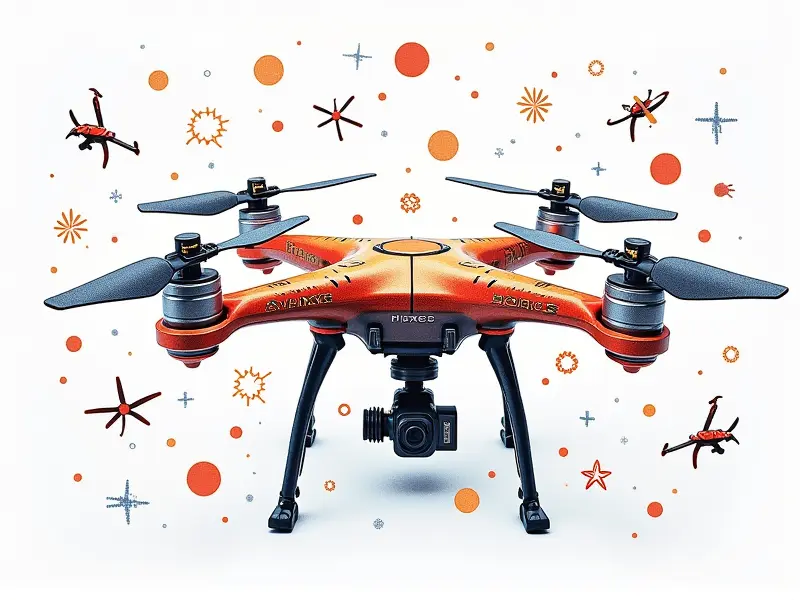Why is my NiMH battery swelling?

NiMH (Nickel-Metal Hydride) batteries are a popular choice for various electronic devices due to their high energy density and environmental friendliness. However, one common issue that users encounter is battery swelling. This article explores the reasons behind this phenomenon and provides solutions to prevent it.
Troubleshooting Swollen NiMH Batteries
When you notice your NiMH battery has swelled, it's crucial to address the problem promptly. Here are some steps to follow:
- Inspect for Physical Damage: Check if there is any visible damage or signs of overheating.
- Check Charging Conditions: Ensure that the battery is not being overcharged or charged under extreme temperatures.
- Monitor Usage Patterns: Observe how you use your device and whether it might be causing excessive strain on the battery.
Causes of NiMH Battery Bulging
NiMH batteries can swell due to several reasons, including:
- Overcharging: Excessive charging beyond the recommended time or voltage can cause internal pressure buildup.
- High Temperatures: Operating or storing batteries in high-temperature environments can lead to chemical reactions that produce gas.
- Inadequate Ventilation: Lack of proper ventilation during charging cycles can trap gases inside the battery, causing it to swell.
Preventing NiMH Battery Swelling Issues
To maintain a healthy lifespan for your NiMH batteries and prevent swelling, consider these preventive measures:
- Use Quality Chargers: Invest in reputable chargers that have built-in safety features to avoid overcharging.
- Avoid Extreme Temperatures: Store and use batteries within the recommended temperature range (typically between 15°C and 30°C).
- Regular Maintenance Checks: Periodically inspect your batteries for signs of wear or damage.
Safely Disposing of Swollen NiMH Batteries
Swollen NiMH batteries pose a safety risk and should be disposed of properly. Here’s how to do it safely:
- Contact Local Waste Management: Check with your local waste management authority for guidelines on disposing of hazardous materials.
- Avoid Throwing in Regular Trash: Do not discard swollen batteries in regular household trash as they can be dangerous if mishandled.
Signs Your NiMH Battery Is Swelling
Identifying swelling early is crucial to prevent further damage. Look out for these signs:
- Bulging or Deformation: Noticeable changes in the battery’s shape.
- Liquid Leakage: If you see any liquid seeping from the battery, it is a clear sign of swelling.
Maintaining Healthy NiMH Battery Lifespan
To prolong the life and performance of your NiMH batteries, follow these tips:
- Proper Charging Practices: Charge your battery according to manufacturer guidelines to avoid overcharging.
- Store in Cool Conditions: Keep batteries stored in a cool place away from direct sunlight and heat sources.
Common Reasons for NiMH Battery Swell
The most common reasons why NiMH batteries swell include:
- Overcharging: Excessive charging can cause internal pressure buildup, leading to swelling.
- High Temperatures: Operating in high-temperature environments accelerates chemical reactions that produce gases.
Safety Tips for Swollen NiMH Batteries
If you encounter a swollen NiMH battery, follow these safety tips:
- Avoid Touching the Battery: Do not handle the battery directly as it may be hot or leaking.
- Isolate from Other Batteries: Keep the swollen battery separate to prevent potential hazards.
Understanding the Risks of Swollen NiMH Drone Batteries
Swelling in drone batteries can lead to serious safety issues, including:
- Fire Hazard: Overheating and gas buildup increase the risk of fire.
- Damage to Equipment: Swollen batteries can cause physical damage to drones or other devices they power.
Identifying and Addressing NiMH Swelling
To effectively address swelling in NiMH batteries, follow these steps:
- Stop Using the Battery Immediately: Cease using the battery as soon as you notice any signs of swelling.
- Contact Manufacturer or Professional: Reach out to the manufacturer for guidance on handling swollen batteries safely.
Conclusion
NiMH batteries are a reliable power source, but they require proper care and maintenance to avoid issues like swelling. By understanding the causes of battery swelling, taking preventive measures, and knowing how to handle swollen batteries safely, you can ensure your NiMH batteries remain in optimal condition for longer use.

